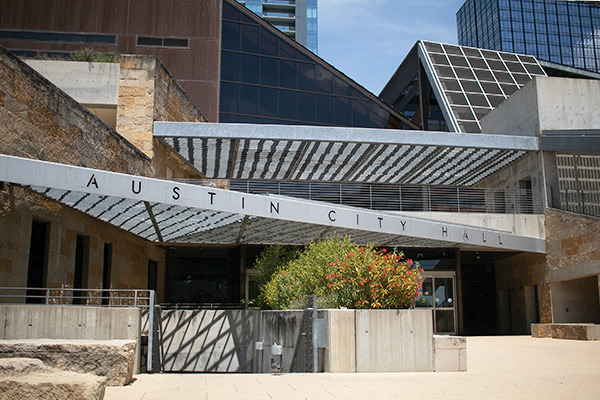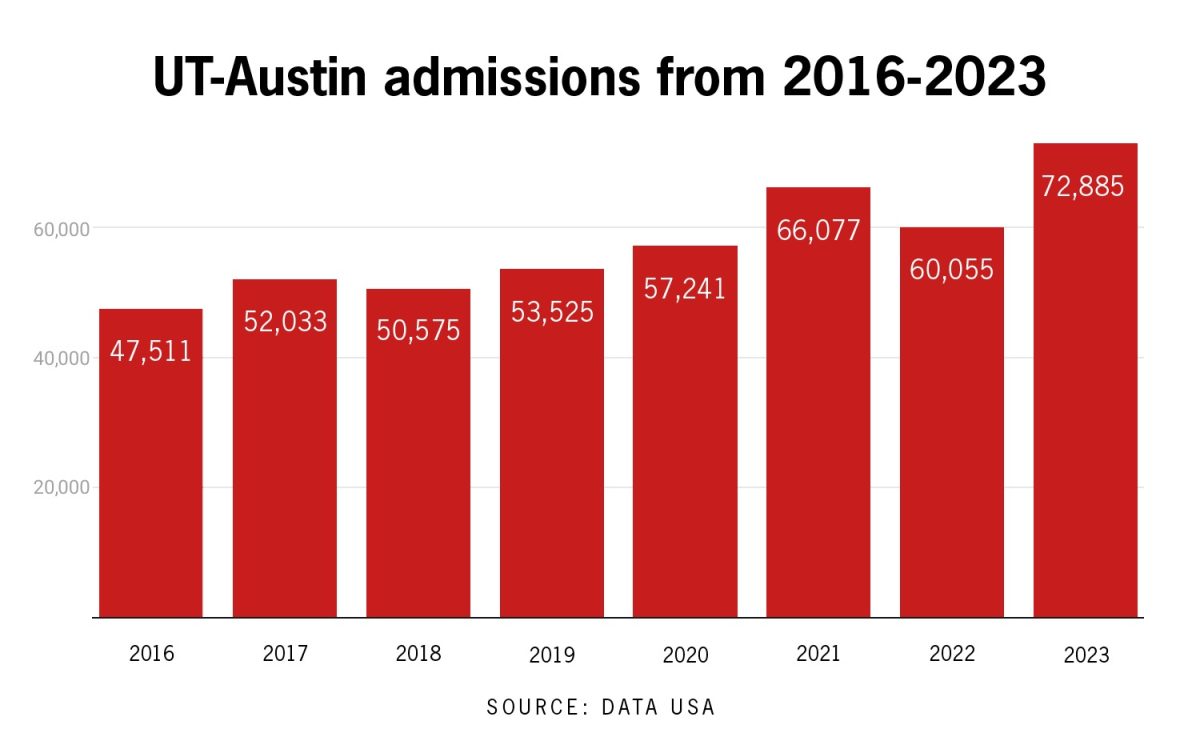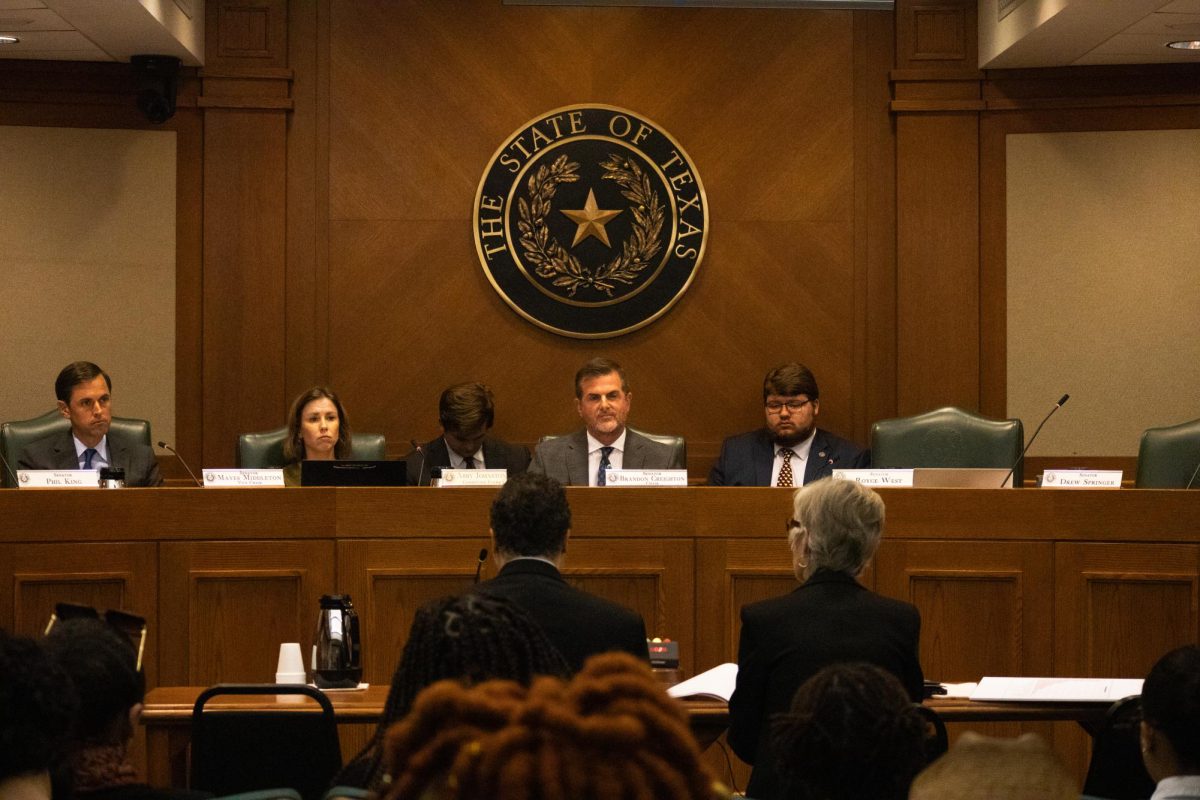Bandwidth ownership will soon change hands from some television broadcasters to cellphone and wireless networks in order to sustain the expanding use of mobile devices.
The Federal Communications Commission has been authorized by Congress to auction public airwaves currently used by local television broadcasters to create wireless Internet systems and cellular networks. The auction would take place in one or two years, helping to provide bandwidth for tablets, smartphones and other data-dependent devices whose recent and explosive growth has lead to a data crunch — particularly in major cities.
“More and more people are using cellphones for more and more things,” said radio-television-film professor Joseph Straubhaar. “When you get so many people using smartphones, there’s a lot more burdens on the network and that leads to a lot of dropped calls and slower Internet access.”
Service providers are forced to choose between raising their service fees or accessing more bandwidth to maintain strained networks, and some believe the FCC is efficiently managing the country’s resources in order to keep costs low, Straubhaar said.
“Part of what the FCC has wanted all along is to take bandwidth in television broadcasting and convert it for different services,” Straubhaar said. “Since they’ve used it for so long, broadcasters feel like they had squatters rights to that spectrum. They tend to forget that it was public property and that it was always clear that the FCC was licensing out its usage.”
Ann Arnold, president of the Texas Association of Broadcasters, said despite increasing demand for mobile data, the country relies on cable television and it would be hazardous to ignore its importance.
“There are 256 television stations in the state of Texas, and those stations are the lifelines of their communities,” Arnold said. “They provide information about public events, emergencies and Amber Alerts. It’s unclear how many of those stations would go off the air if their bandwidth is sold.”
The FCC currently maintains that bandwidth would only be auctioned if the station agreed to sell their spectrum. Since demand is highest in urban centers, Arnold said that the FCC could aggressively push city broadcasters to sell their airwaves.
“None of the broadcasters still profiting are going to agree to sell their spectrum,” Arnold said. “It’s possible that the less-profitable small spectrums in rural areas would sell, but the FCC isn’t interested in rural networks. They want metropolitan.”
Part of the spectrum opened up by the auction will be allotted to emergency services for networks providing information when others were unable to function. The city of Austin has not yet discussed this possibility, said Office of Homeland Security and Emergency Management spokesperson Candice Cooper.
Internet advertisers also see advantages in diverting more spectrum to wireless devices, said Colin Gilligan, account planning director at Austin marketing firm Tocquigny.
“Web searches on mobile phones increased four times from the beginning of 2010 to 2011,” Gilligan said. “With more market, there will be expanding opportunities for mobile and interactive ads and add formats that the new network will be able to handle.”
The providers of these ads, such as Google’s search engine, would benefit from increased coverage, Gilligan said.
“Google might be reaching out so that they benefit from the increased number of searches available with more spectrum,” Gilligan said. “More searches means more profit for Google.”
Printed on Wednesday, February 29, 2012 as: FCC set to auction off public airwaves


















